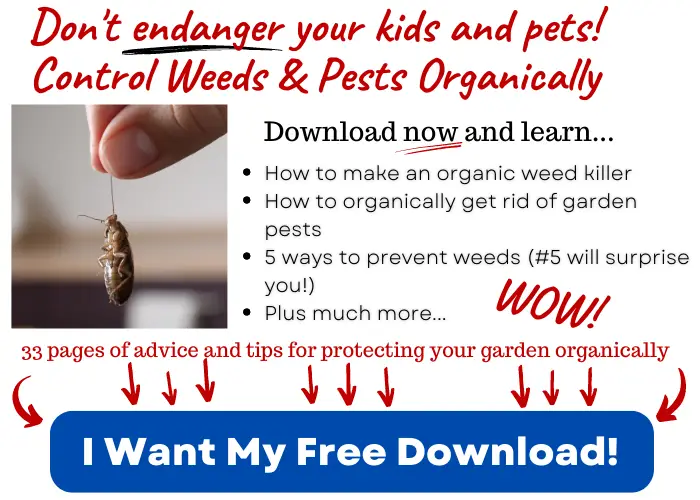Les parasites du jardin peuvent faire des ravages sur vos plantes préférées. Cependant, bon nombre des options de lutte antiparasitaire les plus populaires contiennent des ingrédients nocifs. Heureusement, il existe également de nombreuses options de lutte biologique contre les nuisibles, comme cet article le prouvera bientôt.
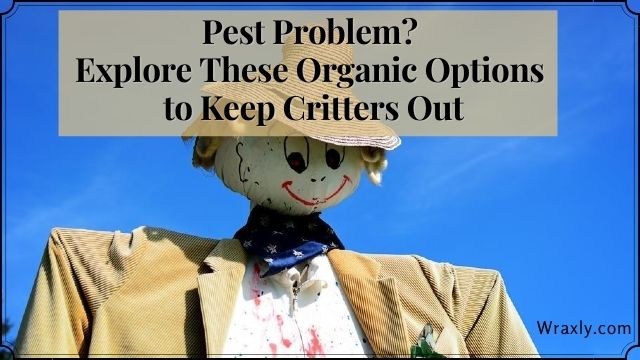
- 9 façons biologiques d'éliminer les problèmes de parasites du jardin
- 1) Appliquez de l’huile de Neem sur vos plantes
- 2) Vaporisez les parasites avec du savon insecticide biologique
- 3) Répandez de la terre de diatomées autour de vos plantes
- 4) Ajoutez des nématodes à la terre de votre jardin
- 5) Invitez des insectes bénéfiques dans votre jardin
- 6) Cultivez des plantes qui repoussent naturellement les parasites
- 7) Utilisez un mélange d'ail et d'eau
- 8) Protégez vos plantes avec des couvertures de rangées
- 9) Éliminez les parasites du jardin à la main
- Pourquoi la lutte biologique contre les nuisibles est-elle préférable ?
- Réflexions finales sur la lutte antiparasitaire biologique
9 façons biologiques d'éliminer les problèmes de parasites du jardin
Si vous cherchez des moyens organiques pour atténuer les dégâts nuisibles Parce que dans votre jardin, vous serez heureux de découvrir les principales options qui s'offrent à vous. Voici les neuf meilleures méthodes biologiques que vous pouvez utiliser pour lutter contre les parasites du jardin :
- Appliquez de l'huile de neem sur vos plantes
- Vaporisez les parasites avec du savon insecticide biologique
- Étalez de la terre de diatomées autour de vos plantes
- Ajoutez des nématodes à la terre de votre jardin
- Invitez les insectes bénéfiques dans votre jardin
- Cultivez des plantes qui repoussent naturellement les parasites
- Utilisez un mélange d'ail et d'eau
- Protégez vos plantes avec des couvertures de rangées
- Éliminez les parasites du jardin à la main
Les méthodes ci-dessus s’appliqueront à différentes situations et auront une efficacité variable. Les sections ci-dessous vous présenteront les détails de chacun.
1) Appliquez de l’huile de Neem sur vos plantes
L’huile de neem est une huile naturelle provenant de l’arbre de neem et constitue un répulsif contre les insectes très efficace. Cette substance agit de plusieurs manières pour perturber les insectes et réduire leur présence dans votre jardin.
L’huile de neem agit notamment en interférant avec le cycle hormonal d’un insecte. Une fois que l’huile de neem affecte les hormones d’un ravageur, il sera beaucoup plus difficile pour ce ravageur de se reproduire et de pondre des œufs sains. À mesure que les parasites de votre jardin produisent moins d’œufs viables, leurs populations diminueront dans votre jardin. L'huile de neem décourage simultanément les parasites de se nourrir de vos plantes aussi.
L'huile de neem peut dissuader des centaines de parasites du jardin, y compris les pucerons, les cochenilles et les aleurodes. La meilleure façon d’appliquer l’huile de neem est de la vaporiser sur vos plantes lorsqu’elles ne sont pas exposées directement au soleil. L'aube et le crépuscule sont souvent idéaux pour appliquer de l'huile de neem, car la forte lumière du soleil peut provoquer des brûlures aux feuilles après une application d'huile de neem.
Produits recommandés à base d'huile de Neem
| Image | Titre | Prime | Acheter |
|---|---|---|---|
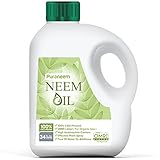 | Huile de Neem pure, 100% Huile de Neem pressée à froid pour plantes répertoriée OMRI (34 oz) | PrimeAdmissible | Vérifier le prix sur Amazon |
Haut | Huile de graines de Neem Bliss bio 100% pure pressée à froid - (16 oz) teneur élevée en azadirachtine - répertoriée OMRI pour une utilisation biologique | PrimeAdmissible | Vérifier le prix sur Amazon |
 | Huile de neem biologique Growel, huile de neem pressée à froid à haute teneur en azadirachtine - 16 fl oz | PrimeAdmissible | Vérifier le prix sur Amazon |
 | Huile de Neem pour Plantes - 16 Oz - 100% Pure Concentré Pressé à Froid | PrimeAdmissible | Vérifier le prix sur Amazon |
 | Emily's Naturals Kit de pulvérisation d'huile de neem pour plantes, fait 48 oz | Spray naturel pour plantes de jardin et d'intérieur | Sûr et biodégradable | PrimeAdmissible | Vérifier le prix sur Amazon |
 | Southern Ag 08722 Triple Action Huile de Neem Fongicide Insecticide Acaricide Marron | PrimeAdmissible | Vérifier le prix sur Amazon |
2) Vaporisez les parasites avec du savon insecticide biologique
Le savon insecticide est une autre des solutions de lutte biologique les plus efficaces contre les parasites. La pulvérisation de savons insecticides sur vos plantes tuera de nombreux parasites à corps mou vivant sur vos plantes. Les ingrédients actifs des savons insecticides décomposent les couches externes du corps d'un ravageur tout en provoquant une déshydratation extrême. Ces deux facteurs finiront par devenir mortels pour les ravageurs de vos plantes.
Le savon insecticide doit entrer en contact avec les parasites de votre jardin alors qu'il est encore humide pour être efficace. Une fois sec, le savon perdra l’essentiel de son efficacité. La meilleure façon d’utiliser du savon insecticide est de localiser les parasites sur votre plante, puis de vaporiser directement la solution savonneuse dessus.
Vous pouvez trouver plusieurs options de savons insecticides disponibles à l’achat. Si vous êtes intéressé par la lutte biologique contre les nuisibles, vous devrez sélectionner un savon insecticide qui se présente comme tel. Chaque étiquette de savon insecticide doit préciser s’il est biologique ou non.
Savons insecticides recommandés
| Image | Titre | Prime | Acheter |
|---|---|---|---|
 | Natria 706230A Savon insecticide Acaricide biologique, 24 oz, prêt à l'emploi | PrimeAdmissible | Vérifier le prix sur Amazon |
Haut | Savon insecticide et concentré de pyréthrine de marque plus sûre, 32 onces | PrimeAdmissible | Vérifier le prix sur Amazon |
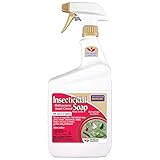 | Savon insecticide Bonide prêt à l'emploi, 32 fl. oz., lutte contre les insectes polyvalente, intérieure et extérieure | Prime | Vérifier le prix sur Amazon |
 | Espoma EOIS24 Savon anti-insectes biologique Blanc | PrimeAdmissible | Vérifier le prix sur Amazon |
 | Trifecta Crop Control Prêt à l'emploi Pesticide naturel, fongicide, acaricide, insecticide à force maximale, aide à vaincre les tétranyques, l'oïdium, le Botrytis et la moisissure sur les plantes, taille 32 OZ | PrimeAdmissible | Vérifier le prix sur Amazon |
3) Répandez de la terre de diatomées autour de vos plantes
L'épandage de terre de diatomées dans vos plates-bandes est une méthode de lutte antiparasitaire efficace qui nécessite un minimum d'effort. La terre de diatomées est une substance pulvérulente composée de restes fossilisés de minuscules animaux marins. Ces restes fossilisés ont une fantastique capacité à extraire les liquides du corps d’un insecte, provoquant sa déshydratation et éventuellement sa mort.
Vous pouvez saupoudrer de terre de diatomées sur et autour de vos plantes de jardin les plus vulnérables. Cette simple application suffira à tuer bon nombre des parasites les plus courants du jardin. Cependant, la terre de diatomées peut tuer des organismes bénéfiques, comme les abeilles. La terre de diatomées peut également être nocive pour la santé humaine si vous l'inhalez.
La meilleure approche pour appliquer de la terre de diatomées est de porter un masque facial pendant que vous la saupoudrez sur la terre de votre jardin. Vous devez également vous assurer qu’il y a peu d’insectes utiles dans la zone qui pourraient mourir au contact de la terre de diatomées. Ces deux précautions vous aideront à assurer votre sécurité tout en éliminant les insectes qui nuisent à vos plantes.
LECTURE COMPLÉMENTAIRE
- Comment se débarrasser des opossums dans votre jardin
- 9 conseils pour contrôler les coléoptères du concombre
- Comment se débarrasser des mouches des fruits dans les plantes d'intérieur
- Comment se débarrasser des moucherons dans un potager
- Comment choisir le meilleur pulvérisateur de mauvaises herbes pour vos besoins
- Les acariens vivent-ils dans le sol ?
Produits de terre de diatomées recommandés
| Image | Titre | Prime | Acheter |
|---|---|---|---|
 | Safer 51703 Punaises de lit à diatomées Puces, fourmis, insectes rampants 1,8 kg | PrimeAdmissible | Vérifier le prix sur Amazon |
Haut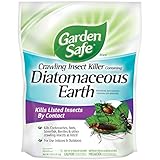 | Garden Safe 93186 Tueur d'insectes, 1 pièce | PrimeAdmissible | Vérifier le prix sur Amazon |
 | Harris Diatomaceous Earth Tueur d'insectes rampants, 8 oz | PrimeAdmissible | Vérifier le prix sur Amazon |
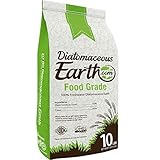 | DiatomaceousEarth 10 LBS Terre de diatomées de qualité alimentaire - 100% Poudre diamateous organique entièrement naturelle - Diametaceous pour les humains est sans danger pour les enfants. | PrimeAdmissible | Vérifier le prix sur Amazon |
4) Ajoutez des nématodes à la terre de votre jardin
L'ajout de nématodes à la terre de votre jardin contribue également à réduire les parasites qui vivent dans votre sol. Les nématodes sont des créatures microscopiques ressemblant à des vers qui peuvent déjà exister dans votre sol. Le problème est que votre sol ne contient probablement pas suffisamment de nématodes pour prévenir les infestations.
Augmenter la population de nématodes dans votre sol n’améliorera pas les problèmes liés aux ravageurs qui vivent en surface. Cependant, ils sont exceptionnellement bien équipés pour lutter contre les ravageurs du sol comme les larves, les thrips et la chrysomèle des racines du maïs.
Faites attention au type de nématode que vous autorisez dans votre jardin. Bien que les nématodes bénéfiques aident à prévenir les ravageurs, d'autres variétés de nématodes peuvent endommager vos plantes. La variété de nématode que vous devez utiliser est un nématode entomopathogène, souvent appelé simplement nématode bénéfique.
Nématodes recommandés
| Image | Titre | Prime | Acheter |
|---|---|---|---|
 | Nema Globe 4003224 Nématodes moucherons fongiques, 20 millions, blanc | PrimeAdmissible | Vérifier le prix sur Amazon |
Haut | NaturesGoodGuys - Nématodes bénéfiques triple mélange HB+SC+SF (50 millions) | Prime | Vérifier le prix sur Amazon |
 | BioLogic Scanmask Steinernema Feltiae (Sf) Nématodes bénéfiques pour la lutte naturelle contre les insectes nuisibles, taille 5 millions | Prime | Vérifier le prix sur Amazon |
 | Environmental Factor 50 x 1 million de nématodes bénéfiques (S.feltiae) Pot Popper Pro Gnat & Thrip Control | PrimeAdmissible | Vérifier le prix sur Amazon |
 | Solution concentrée pour nématodes prête à pulvériser | PrimeAdmissible | Vérifier le prix sur Amazon |
 | Growers Trust Nematode Control Non toxique, biodégradable – Traitement naturel des nématodes (la solution donne 1 gallon RTU) | Prime | Vérifier le prix sur Amazon |
5) Invitez des insectes bénéfiques dans votre jardin
Inviter des insectes dans votre jardin semble être la dernière idée que vous devriez poursuivre pour éliminer les parasites. Cependant, de nombreux insectes sont bénéfiques pour votre jardin et contribueront à dissuader d’autres espèces d’insectes nuisibles. Certains des insectes les plus bénéfiques pour la lutte antiparasitaire sont :
- Coccinelles
- Coléoptères terrestres
- Guêpes braconides
- Chrysopes vertes
- Punaises de demoiselle
Chaque insecte de la liste ci-dessus se nourrit des ravageurs courants que vous trouvez dans votre jardin. Apporter ces insectes prédateurs bénéfiques dans votre jardin est un moyen naturel de prévenir et d’atténuer les infestations.
6) Cultivez des plantes qui repoussent naturellement les parasites
Certaines espèces végétales sont très efficaces décourager les parasites d'arriver dans votre jardin. Certaines des meilleures plantes à utiliser à cette fin sont :
- Soucis
- Romarin
- Chrysanthèmes
- Alliums
- Ciboulette à l'ail
Cultiver une de ces plantes est une mesure préventive précieuse contre les infestations de ravageurs. Beaucoup de ces plantes antiparasitaires ajoutent également de jolies fleurs et feuillages à vos projets de plantation.
7) Utilisez un mélange d'ail et d'eau
De nombreux ravageurs du jardin détestent l’ail et l’éviteront à tout prix. Vous pouvez profiter de cette tendance en créant un ail spray pour vos plantes. Pour utiliser cette méthode, vous devrez écraser plusieurs gousses d'ail avec un mélangeur ou un robot culinaire. Ajoutez ensuite quelques gouttes de savon à vaisselle et diluez le mélange avec de l'eau.
Une fois ces étapes terminées, vous pouvez remplir un flacon pulvérisateur avec votre mélange d'ail et d'eau. La prochaine fois que vous soupçonnerez un problème d'infestation, vaporisez vos plantes avec votre solution d'ail comme vous le feriez avec du savon insecticide ou de l'huile de neem.
8) Protégez vos plantes avec des couvertures de rangées
L’un des moyens les plus fiables de protéger vos plantes contre les parasites est d’installer une barrière physique. Bien que cette approche puisse sembler lourde, c’est l’une des rares options qui garantit presque que vos plantes seront exemptes de parasites. Les couvertures de rangées sont souvent la première option utilisée par les jardiniers s'ils souhaitent désespérément conserver leur plantes de jardin préférées à l’abri des infestations.
Les couvertures de rangées flottantes sont peut-être les types de couvertures de rangées les plus populaires que vous puissiez utiliser. Ces couvertures de rangées sont faciles à installer et bloquent tout insecte qui espère accéder à vos plantes tout en permettant à la lumière du soleil d'entrer. La meilleure façon d'utiliser une couverture de rangées est de l'installer juste après la plantation de vos plantes. L'ajout d'une couverture de rangée immédiatement après la plantation donne aux insectes une possibilité minimale de se frayer un chemin dans votre lit de jardin.
9) Éliminez les parasites du jardin à la main
Notre dernier conseil pour éliminer les parasites est le plus simple. Pour résoudre rapidement votre problème de parasites dans votre jardin, vous pouvez éliminer les insectes à la main.
Mettez une paire de gants de jardin et recherchez dans vos plantes tous les parasites que vous pouvez voir à l'œil nu. Après avoir localisé ces insectes, vous devez les retirer de la plante ou les tuer immédiatement. L’élimination manuelle n’est pas la meilleure option en cas d’infestation à grande échelle. Mais si vous n’avez remarqué que quelques parasites sur vos plantes, les éliminer à la main peut être une option utile.
Vous pourriez également être intéressé par… aoûtats vs acariens du trèfle
Pourquoi la lutte biologique contre les nuisibles est-elle préférable ?
Vous connaissez maintenant certaines des meilleures options de lutte biologique contre les parasites pour votre jardin. Avant de conclure, examinons quelques-unes des raisons pour lesquelles ces options biologiques valent la peine d’être utilisées.
La lutte antiparasitaire biologique est plus sûre à utiliser
Les options de lutte antiparasitaire non biologique contiennent souvent des produits chimiques agressifs qui peuvent être dangereux pour votre santé. Il peut être tentant d’utiliser ces méthodes pour débarrasser immédiatement votre jardin des parasites. Cependant, l’option la plus sûre à long terme consiste à utiliser des approches biologiques, car elles ne présentent aucun risque pour votre bien-être.
La lutte biologique contre les nuisibles est respectueuse de l’environnement
Les produits chimiques présents dans les produits antiparasitaires non biologiques sont non seulement nocifs pour vous, mais ils peuvent également nuire à l’environnement. En revanche, la lutte biologique contre les ravageurs s'appuie souvent sur des processus naturels, ce qui leur permet d'éliminer les ravageurs sans menacer l'environnement. santé.
La lutte biologique contre les nuisibles ne perd pas son efficacité
Les méthodes biologiques de lutte antiparasitaire ne perdent pas leur efficacité avec le temps, contrairement à de nombreuses options non biologiques. Pendant que vos produits antiparasitaires non biologiques sont entreposés, leur les produits chimiques peuvent commencer à se décomposer, réduisant considérablement leur puissance. En revanche, les méthodes biologiques de lutte antiparasitaire que nous avons partagées resteront utiles bien plus longtemps.
Réflexions finales sur la lutte antiparasitaire biologique
Bien que les parasites du jardin soient une nuisance, il existe de nombreuses méthodes biologiques que vous pouvez utiliser pour les éliminer. La prochaine fois que vous subirez une infestation de jardin, référez-vous à l’une des neuf options de lutte biologique contre les parasites dans la liste ci-dessus, et bientôt votre jardin sera exempt de parasites.

John Haryasz est écrivain indépendant et paysagiste. Dans le domaine de l'architecture de paysage, il a contribué à de nombreux projets de conception réussis à travers le pays. En tant qu'écrivain, John se spécialise dans la création de contenu Web captivant et informatif. À travers ce travail, il vise à partager ses connaissances en design et à promouvoir l'engagement avec le monde de l'extérieur.
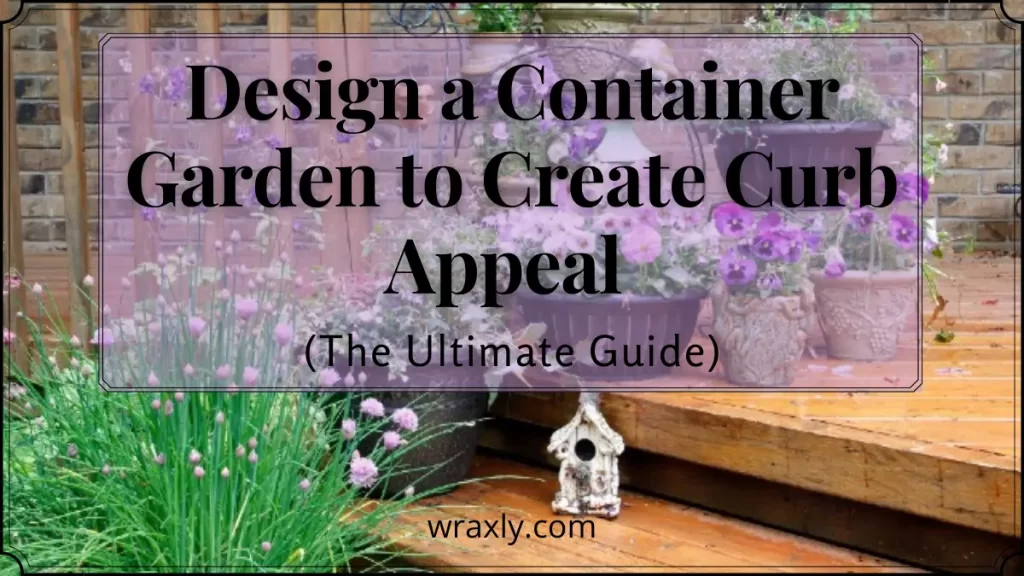
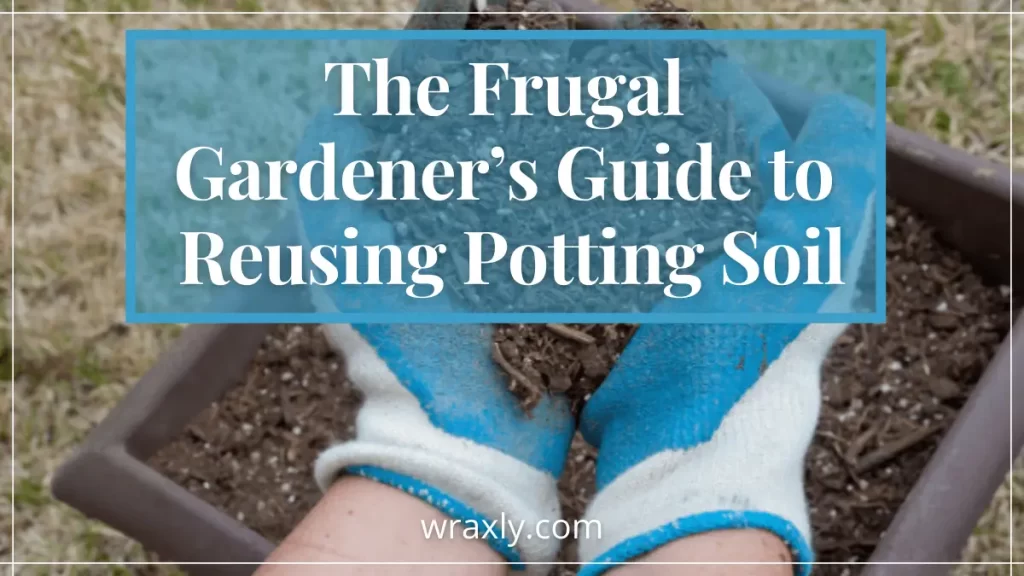
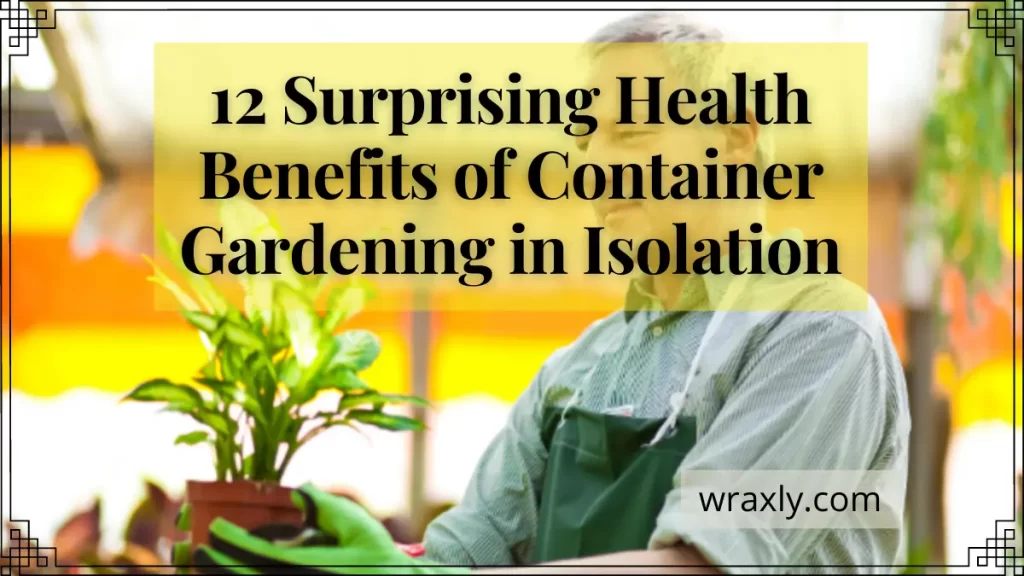
![10 erreurs courantes de jardin en conteneur à éviter [Guide du débutant]](https://wraxly.com/wp-content/uploads/2021/02/10-Common-Container-Garden-Mistakes-to-Avoid-Beginners-Guide-1200-1024x576.webp)
